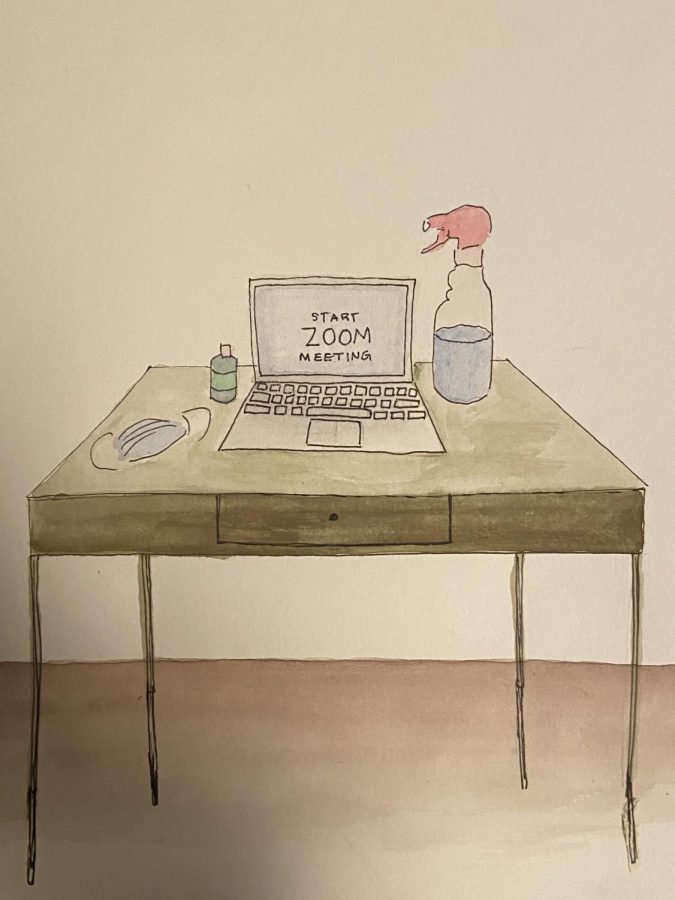How COVID-19 Has Rewritten Social Norms About Hygiene Precautions
March 27, 2021
For the second time in the relatively new millennium, a global catastrophe has completely altered the way our world works; as expected, new social norms have formed in response. New habits regarding safety measures that now feel like second nature (such as avoidance of large groups, social distancing, constant cleaning, wearing a face covering, etc.) are likely to continue being practiced long into the future, even outside the context of COVID-19. “We have learned a lot from the pandemic and should continue to institute these precautions in our day-to-day lives,” commented CRLS student Selma Farsakh Ulm ’22 on the topic of future sanitation norms. Major reform after a worldwide crisis is incredibly common and easy to forecast—it isn’t even specific to pandemics in general. “There will be a ‘new normal,’” said Dr. Timothy Brewer, professor of medicine at UCLA, in a conversation with Healthline, “Think of how it’s been 20 years after 9/11. We still take off our shoes when we go to the airport. The same things happen as we get closer back to a pre-pandemic state.” However, an outbreak of this magnitude brings a new aspect to the table: the general distrust of strangers that typically follows a disaster now factors in their hygiene. If anything, the events of the last year have prompted an awakening, of sorts, around germaphobia—it’s not uncommon to look back at the old, maskless lifestyle and marvel at how exposed we were to our surroundings.
In December of last year, Science News interviewed an assortment of different experts on the post-pandemic lifestyle. Oregon State University historian Christopher McKnight Nicols asserted that, although we have seen increased socialization in past pandemics of this size, modern-day developments may alter our approach: “It’s an open question whether social behaviors we took for granted, such as handshaking and hugging, will endure,” Nicols stated. But it doesn’t stop there. Anything from day-to-day formalities to iconic American traditions, such as baseball games and concerts, has the potential to be avoided by the masses—not out of fear of COVID-19, but as a result of new awareness and attention to cleanliness because of the pandemic.
In-person attendance is no longer the expectation in the workplace either, and this flexibility appears to be embraced in most settings, regardless of how rigid their environments were in simpler times. A survey conducted by Gartner reported that 82% of employers will now allow their employees to work remotely for at least some of the time (nearly half will permit it at any time), meaning a new hybrid-model culture in the workplace is likely on the cusp. The change is far from sacrificial, however—said transformation will increase productivity from employees and decrease costs of keeping up the office. “As companies dare to explore options beyond the ‘one-size-fits-all’ office solution, we can start sharing spaces in a new way,” said Jeanna Lundberg, CEO of Respaces, to BBC.
In addition, elaborate installations of sanitary measures in public places may be here to stay for the foreseeable future. “[H]and scrubbing, mask-wearing and hyper attention to surface disinfection will be the norm at every turn,” remarked Eric Toner, M.D., a senior scholar with the Johns Hopkins Center for Health Security, in an interview with the American Association of Retired Persons (AARP). The solution to this particular avoidance of germs will most likely appear in the form of major technological advancements in the coming years: “The pandemic accelerated the adoption and implementation of many technologies that would have taken years, if not decades, to become mainstream,” commented Saeed Elnaj of Forbes. As a result of the sudden shift in lifestyle, in combination with this new emphasis on sanitation, touchless and interaction-free technology is on the rise. The question of its prevalence in our current and future world is still to be determined.










